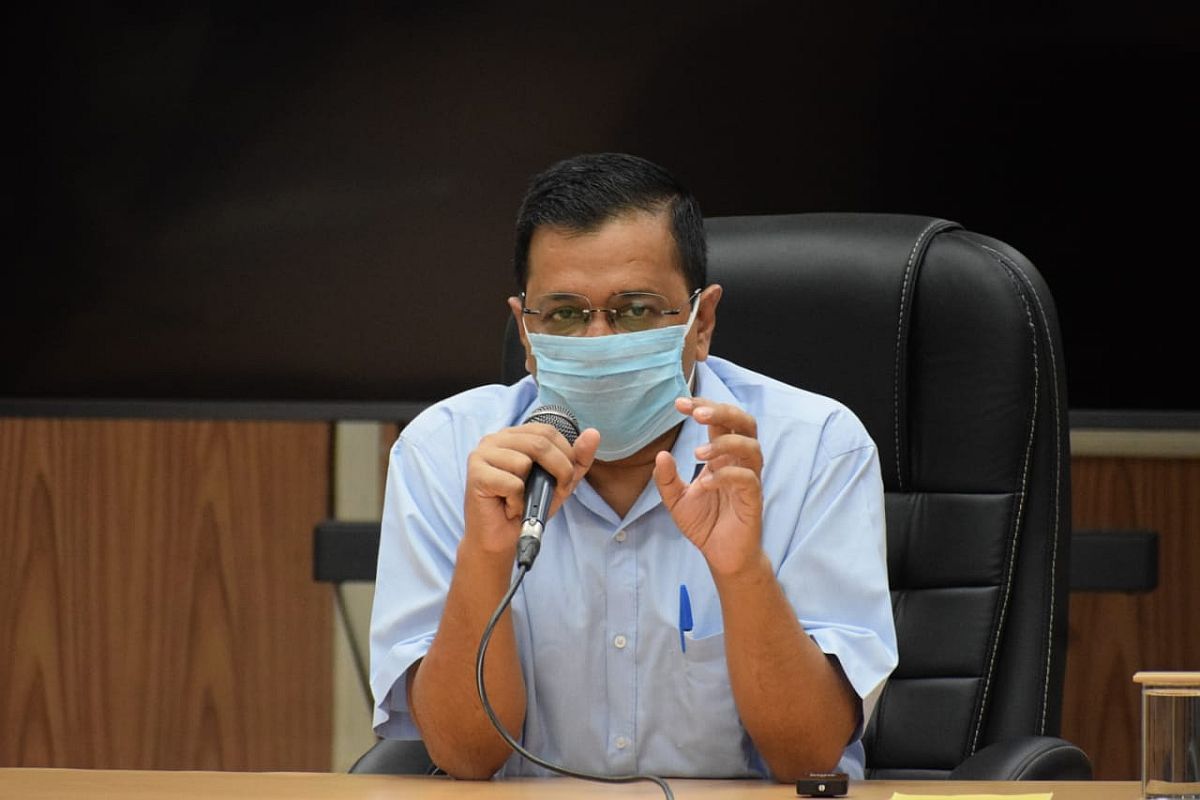Delhi Chief Minister Arvind Kejriwal participated in the Daring Cities 2020 Summit on Climate Change held in Germany through video conferencing. He discussed about Delhi government’s recent electric vehicle (EV) policy and the new crop stubble decomposer. He also spoke about other measures taken to tackle air pollution in the national capital over the past few years.
A Delhi government official said that Kejriwal participated in the session with a multilevel action plan to tackle the climate emergency specifically with a focus on New Delhi.
Daring Cities is a global forum for urban leaders on climate change, particularly in the context of the Covid-19 epidemic, the government said in a statement. The conference is being hosted in Germany.
The CM of Delhi has been recognized as one of the five top leaders of countries that are going beyond the limits in order to take bold climate oriented actions. He elaborated on the efforts taken by the Delhi government to reduce the level of air pollution in Delhi, especially in the last five years.
Kejriwal had discussed Delhi’s battle against air contamination at the C40 Cities Climate Summit in Copenhagen in October a year ago.
In the ‘Daring Cities 2020’ conference, he also discussed on how his government had shut thermal power plants. He even discussed the introduction of the odd-even rule and about the road space rationing scheme in order to reduce pollution in Delhi during the winter months.
The conference also had urban leaders and decision-makers from Los Angeles (USA), Bogota (Colombia), Sao Paulo (Brazil), and Entebbe (Uganda). It invited talks on multilevel action needed to tackle climate emergency and ensure environmental protection and sustainability.
The Delhi CM stressed that his government has taken several measures to tackle the twin problems of climate change and air pollution, which have resulted in a reduction in pollution by 25%, in terms of average PM 2.5 levels. He also announced the target to make Delhi the EV capital of the world. He further added that Delhi government has recently notified an appreciably progressive EV policy that will enable large-scale transition to EV vehicles, under which 25% of all new vehicles by 2024 will be EVs. Kejriwal added that a creation of citywide charging infrastructure, a mix of financial incentives, and extra fee/taxes on polluting vehicles are being implemented as the groundwork for the wide adoption of EVs in Delhi. He further added that the Delhi government has tied up with the Indian Agricultural Research Institute to introduce the bio-decomposer technique as a part of sustainable solutions to crop stubble burning. This was done so that the farmers are not necessarily compelled to burn their crop residues and stubble out of the unavailability of any other ways.
The Delhi CM presented a wide array of steps which had been taken by the government in the NCR region. This meeting comes with hope for the people of Delhi, given the recent history of records of the city being high on the charts of pollution, with the 2017 smog being a recent prominent example.





